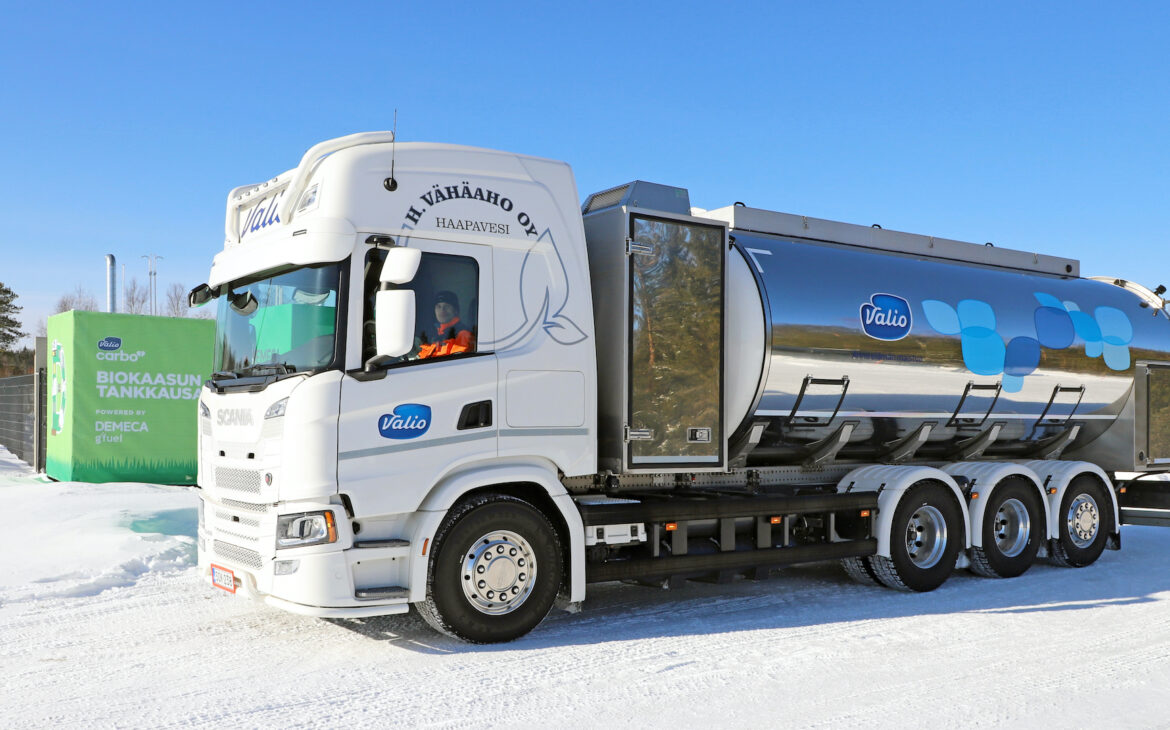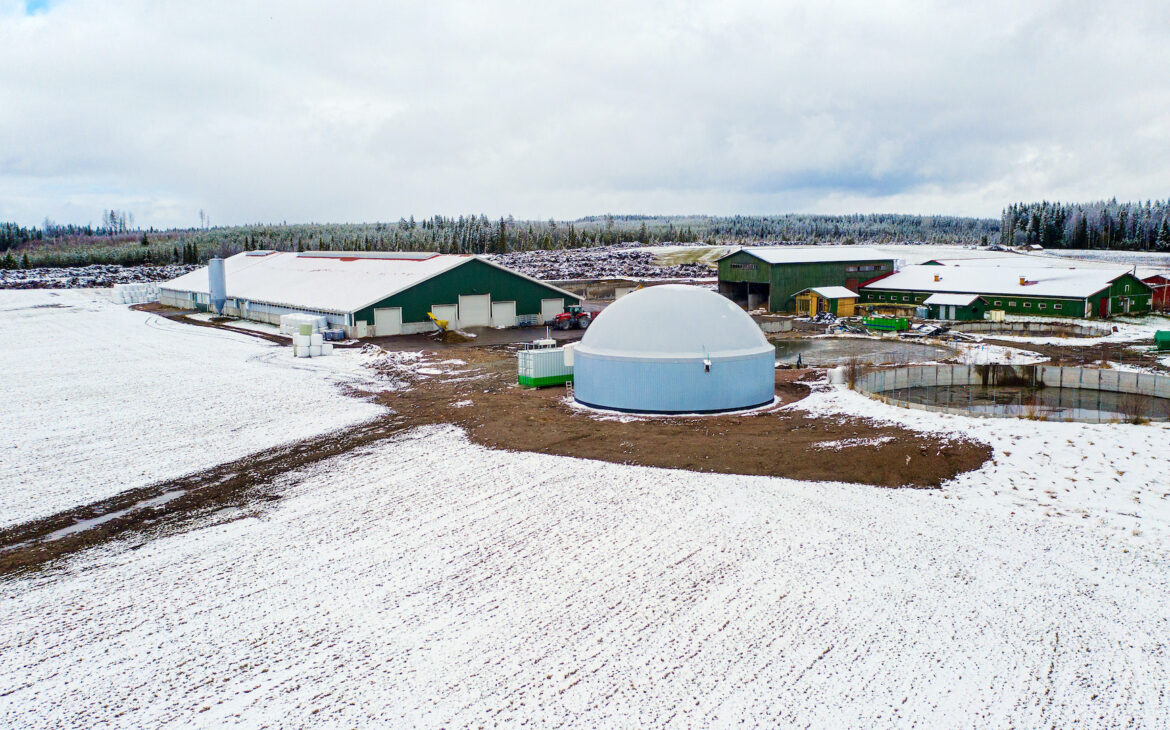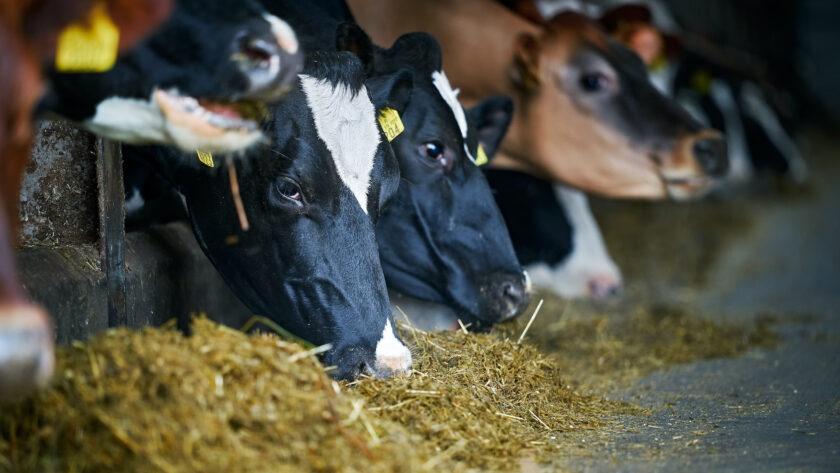Valio, Finland’s largest dairy company, has partnered with energy company St1 Oy in a joint venture to produce renewable biogas from dairy cow manure and other agricultural by-products mainly as fuel for heavy-duty transport.
By 2030, the two companies hope to create 1000GWh (1 terawatt-hour) of biogas a year, meeting about one-third of the biogas required for Finland to achieve its fossil-free transport ambition.
The fuel will be distributed through St1 Oy’s nationwide network of heavy-duty vehicle fuelling stations and both Valio and St1 Oy intend to progressively increase the use of manure biogas in their own logistics.
Around 15 million tonnes of manure is generated annually by dairy cows in Finland, enough to produce as much as 3–5 terawatts of biogas. Other agriculture and food-industry biowaste may be included in the program in the future.
A key challenge to the widespread adoption of biogas is developing a supply-chain infrastructure that gives transport companies confidence to convert to the fuel. Valio believes converting heavy-duty vehicles to run on biogas can result in a significant reduction in emissions. However, that is contingent on converting a significant proportion of the vehicle fleet – in short, supply must meet demand to achieve efficiency.

Valio, a cooperative owned by around 4300 dairy farmers, is a major player in the international dairy ingredients market. The company had sales of US$2.1 billion last year and is Finland’s biggest food exporter, its products sold in about 60 countries across Europe as well as in China and the US.
Two production methods for biogas
There are two ways to produce biogas: one way involves creating it at individual farms or at a biogas plant shared by several farms. The alternative is production at a larger biogas plant to which manure would be transported from local farms. Both the alternatives are possible in Valio and St1 Oy’s joint project, but the initial focus is the smaller-scale solution for which the companies hope to have up to three premises operational by the middle of this decade.

“We have identified strategic focus areas, where we can best achieve our goal in creating a sustainable carbon cycle,” says St1 Oy’s CEO Mika Wiljanen.
“By investing in renewable energy and in the transition of the energy sector while ensuring the necessary cash flow, we are solving global energy challenges. Entering the biogas business is a concrete step in the consistent and long-term implementation of our growth strategy,” says Wiljanen.
“Domestic manure biogas can reduce the emissions from heavy-duty transport quickly and efficiently while simultaneously improving Finland’s fuel self sufficiency. This is an opening from two Finnish players in bringing domestic manure biogas to the markets.”
St1 Oy is also preparing to launch biogas businesses in Sweden and Norway.
The challenge of methane
Dairy companies around the world are facing increasing pressure to reduce their carbon footprint, in part because decomposing cow manure is a significant producer of methane emissions.
Thus, making biogas from manure decreases those emissions, potentially reducing the carbon footprint of milk production by as much as a quarter when both agricultural and transport emissions reductions are taken into account.
“Valio aims to cut milk’s carbon footprint to zero by 2035,” says CEO Annikka Hurme. “The use of manure as a transport fuel is one of the most important handprint actions in our climate program. The intention is that dairy farms can take part in the biogas production with a low threshold. It’s clear that production must be a profitable business also from the dairy farms’ perspective.”
Valio also highlights a further spinoff from converting manure to biogas: material left over from the process can be recycled as fertiliser for fields, reducing farmers’ reliance on chemical fertilisers and the resultant nutrient runoff from pastures into waterways.
The manure contains nutrients needed by plants: nitrogen, calium, and phosphorus and the material left over from biogas production can be separated into dry and liquid fractions and used as fertiliser.
“The farmer saves money,” explains Juha Nousiainen, senior VP, carbon-neutral milk chain, at Valio. “The leftover material can also be used to make bedding for animals or substrates for vegetables. This can replace the peat that is currently used.”



